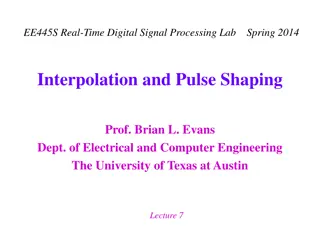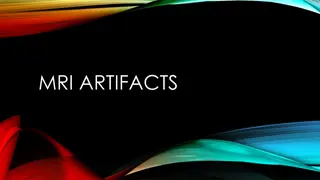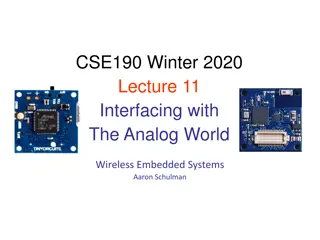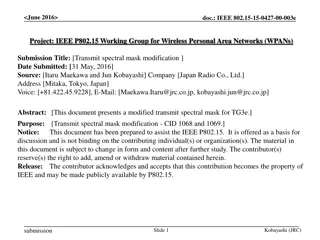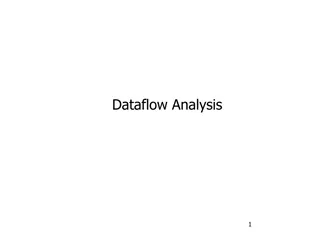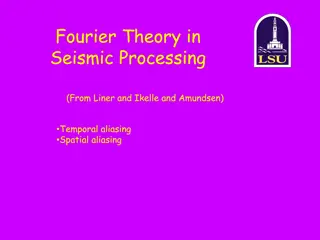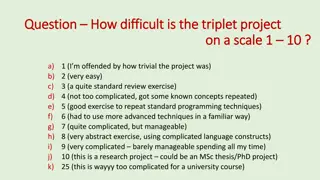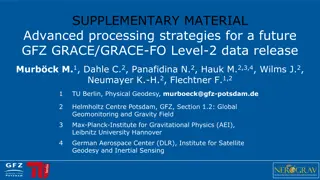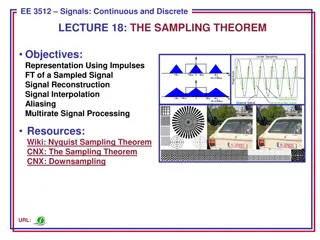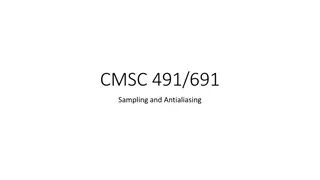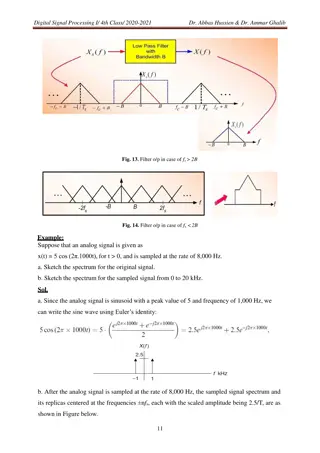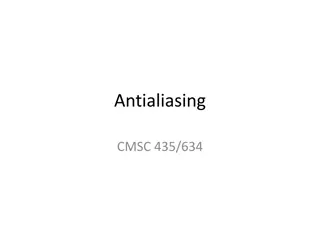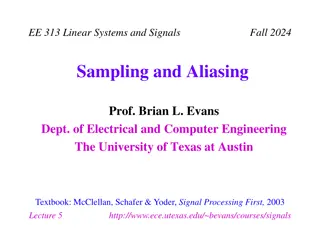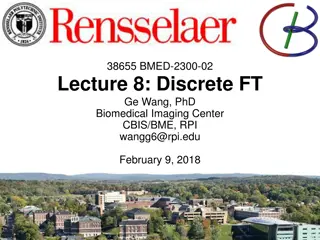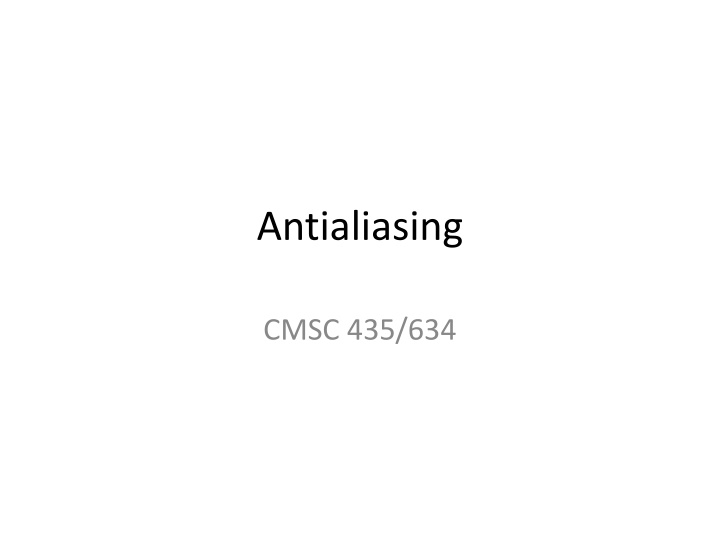
Resolving Aliasing Issues in Digital Imaging
Explore the impact of aliasing on digital images, including visual artifacts like jagged lines and missed details. Learn how antialiasing techniques can help address these issues, along with insights into sampling theory and reconstruction limitations. Discover practical strategies for fixing aliasing problems in your images for enhanced visual quality.
Download Presentation

Please find below an Image/Link to download the presentation.
The content on the website is provided AS IS for your information and personal use only. It may not be sold, licensed, or shared on other websites without obtaining consent from the author. If you encounter any issues during the download, it is possible that the publisher has removed the file from their server.
You are allowed to download the files provided on this website for personal or commercial use, subject to the condition that they are used lawfully. All files are the property of their respective owners.
The content on the website is provided AS IS for your information and personal use only. It may not be sold, licensed, or shared on other websites without obtaining consent from the author.
E N D
Presentation Transcript
Antialiasing CMSC 435/634
Original Scene Luminosity
Pixel Sampling Samples
Displayed Image Luminosity
Aliasing Visual artifacts Jagged lines and edges High frequencies appearing as low Small objects missed Texture distortions Strobing and popping Backward movement
Sampling Theory Shannon s sampling theory (1D): A band limited signal f(t) with cut off frequency wF may be perfectly reconstructed from its samples f(nT0) if 2 /T0 >= 2wF wF == Nyquist limit Alternatively: a signal can be reconstructed exactly from samples only if the highest frequency is less than half the sampling rate
What Will Alias? Plot based on frequency Like audio equalizer Fourier transform
What Will Alias? Sampling replicates spectrum in a grid Aliasing when they overlap
How to Fix It? Filter Blur away high frequency Blur is better than aliasing
Filters 24
Analytic Area Sampling Compute area of pixel covered Box in spatial domain Nice finite kernel easy to compute sinc (sin(x)/x) in freq domain Plenty of high freq Still aliases
Analytic higher order filtering Fold better filter into rasterization Can make rasterization much harder Usually just done for lines Draw with filter kernel paintbrush Only practical for finite filters
Supersampling Numeric integration of filter Grid with equal weight = box filter Push up Nyquist frequency Edges: frequency, still alias Other filters: Grid with unequal weights Priority sampling
Adaptive sampling Vary numerical integration step More samples in high contrast areas Easy with ray tracing, harder for others Possible bias
Stochastic sampling Monte-Carlo integration of filter Sample distribution Poisson disk Jittered grid Aliasing Noise

